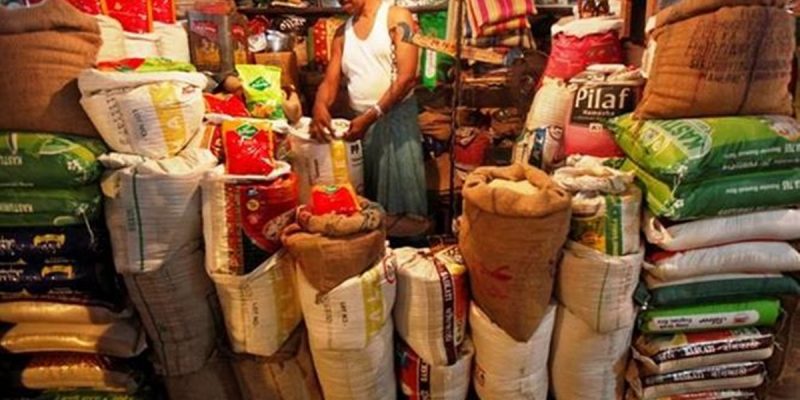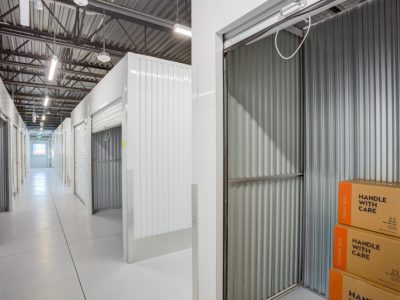The current pandemic situation has brought things to a standstill. Most of the business operations have halted irrespective of the size and nature of the business. The Coronavirus outbreak has been a nightmare for entrepreneurs, and business cannibalism has never been more real. Businesses and workers are literally on survival mode, hoping to recuperate later if they stand tall at the end of this surreal situation.
In India, the Medium, Small and Micro Enterprises (MSMEs) make up for a majority portion of business activities being carried out across the nation. These MSMEs employ over 40% of India’s total workforce, almost 106 million people and contribute as much as 8% to the GDP. The micro-businesses are generally operated with little to no technological infrastructure; most of them are retail stores selling goods to customers in the nearby locality.
The introduction of GST had given a major push to small businesses in India. GST tax slabs for a majority of goods sold by these small retail stores have been a major catalyst to this growth. However, this reasonable goods and services tax scheme is not enough to help small businesses in the digital age.
Going Online for Survival
Most of these Micro stores are local kirana shops which are general stores selling a variety of goods, usually fast-moving consumer goods. Given the gravity of the current outbreak situation, most of these small businesses have almost stopped all their business activities. Some of them who continue to prosper even during these dire times are the ones who have evolved and adapted to the digital era by selling their products online.
Majority of the products sold by these kirana stores are of daily needs, and their demand has not fluctuated due to the outbreak given the nature of the commodities. However, people are finding it difficult to get out of their house and make a purchase due to strict measures to contain the spread of the virus. Omni-channel digital presence is a necessity in the current situation. E-commerce for Kirana stores is the only feasible way to reach customers and increase revenue.
The Digital Evolution
The kirana stores are essential for the Indian retail industry, given their unprecedented contribution to FMCG sales. They account for almost 90% of all the FMCG sales in India. These FMCG sales are delivered using the chain of more than 12 million kirana stores in the nation. Kirana stores have enjoyed a special position for a long time given their vicinity to the consumers and low real-estate investment requirements.
This is slowly changing as consumers are getting accustomed to buying things online and not walking out of the house to make a purchase. Low real-estate requirements were among the prime advantages that these stores had to compete with the big players, but this is also vanishing given the influence of technology on customer behaviour. The need of the hour is to leverage the digital technology and increase the customer base to stay ahead in the game.
In these modern times, personalisation is the key to growing and maintaining a loyal customer base. What is needed for personalisation? Well, data is the key, the more, the merrier. Big companies have the capability to invest in data and deliver a personalised experience. These kirana stores, on the other hand, have a low budget and can’t invest much in data but given their extensive local presence, they are well aware of their customer’s likes and preferences. They can even provide a personal touch that might be missing with large corporations.
Adapting to this digital trend has helped the Kirana stores to evolve and spread their business. They have started adopting digital signage technology to attract customers with an explicit display of information using LED screens. They are also leveraging digital signage to promote their deals and offers on various products. Queue management and billing processes have also been ramped up using digital signage technology. Inventory management has also been solved with cutting edge technological solutions.
Modern Solutions
Companies in the supply chain and catalogue management domains have come to the rescue of kirana stores by providing them with digital solutions to challenges. FMCG giants like Hindustan Unilever Limited (HUL) is also collaborating with retail partners to experiment with new business models intending to drive more sales for consumer goods. Retail industry leader Walmart is also offering store modernisation and PoS software to small retailers who want to hop on the digital trend and grow their stores.
Companies like Metro Cash & Carry India are also providing Point of Sales (PoS) solutions to small retailers on a monthly instalment basis. This will allow kirana stores to track inventory and sales easily and keep them updated on the stock of goods available in their store. In addition to this, they can also track and keep a record of fast-moving items whose sales and frequency are higher. This will enable the kirana store to make data-driven decisions and increase their overall profitability, just like big retailers.
Ecommerce and tech giants like Amazon and Facebook are also interested in catering to the kirana store market in India. JioMart is the latest initiative by Reliance industries that aims to woo the small retail store segment in India by leveraging the power of Jio’s network infrastructure and Reliance stores. Amazon’s latest initiative to on-board small retail stores on its platform is called Local Shop.
The aim is to provide customers with a wide range of selections and improve the delivery time by partnering up with local stores. This will also help the stores to increase the customer base and expand their territory, making it a win-win for both the parties. There is a nice surprise for store owners that will provide them with additional income for acting as delivery and pickup point. Store owners can sign up for “I have space” to act as mediators in this scheme. They can also signup for “Amazon easy” to provide additional offerings to their walk-in customers.
There is no bar on the size and regions of the local store owners, store owners from all parts of the nation can join the “Local Shop” program offered by Amazon. The shopkeeper can choose the areas where they want to deliver their product. They will have to install the Amazon delivery app to provide real-time delivery updates to their customers. All these shipments will be tracked on a regular basis to ensure a high level of customer satisfaction. It a great step towards revamping the kirana store segment in India.








Comments